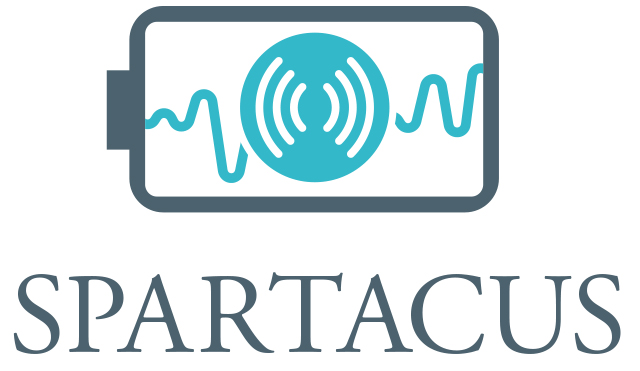Smart sensors for future fast charging batteries – European project “Spartacus” launched

Faster charging, longer stability of performance not only for electric vehicles but also for smartphones and other battery powered products. What still sounds like science fiction today might be feasible in the future, not least thanks to innovations the recently started “Spartacus” research project wants to achieve. By utilizing advanced sensors and cell management systems, “Spartacus” aims to reduce charging times by up to 20 % without compromising the reliability and service life of batteries. The European Union is funding “Spartacus” as part of the Battery 2030+ research initiative.
Electric mobility is to become as user-friendly as possible. "Electric vehicles are already fast and quiet, but a major shortcoming so far is the long charging time compared to vehicles that are refuelled with fossil liquid or gaseous fuels," says project coordinator Gerhard Domann from the Fraunhofer Institute for Silicate Research, Würzburg, describing the initial situation. Today, it is primarily the battery chemistry and design as well as the associated battery management system that prevent faster charging in order to protect the batteries from premature aging.
Factors that lead to premature aging, loss of performance or even critical failure are manifold and can be mutually reinforcing. If several factors come together, such as mechanical stress, low temperatures and excessively high charging or discharging currents, irreversible damage can occur in the battery. To avoid this, batteries usually are operated by integrated battery management systems in a mode that is as moderate as possible and does not exhaust all power reserves. The project consortium of Spartacus wants to exploit this potential in order to optimize and accelerate charging and discharging with a battery management system using advanced integrated sensors to monitor the actual battery condition while prolonging the battery's life.
“Spartacus”, the acronym stands for "Spatially resolved acoustic, mechanical and ultrasonic sensing for smart batteries". The research project aims to develop a low-cost sensor array technology for lithium-ion batteries combined with the concept of a cell management system for data prepossessing ensuring optimal charging and discharging depending on the battery's condition. The project will focus on mechanical and acoustic sensors complemented by electrochemical impedance measurement and temperature sensors. "With the Spartacus sensor technology, errors and negative influences on battery life and performance should be detected at an early stage. Based on the sensor data, the cell and battery management system can control the charging and discharging processes accordingly to counteract premature battery aging and eliminate negative influences as far as possible," says Gerhard Domann.
Smart sensor technology by Fraunhofer
Fraunhofer ISC is contributing its expertise in the development of smart sensors and in the analysis of aging processes in battery components for Spartacus. “The causes of premature battery aging have been preoccupying us for a long time, and we have refined our methodology in a number of projects to clarify these processes and find possible solutions”, reports project manager Dr. Jochen Settelein from Fraunhofer ISC. Important preliminary work in the field of intelligent sensor technology in earlier projects has led to new approaches based on acoustic and mechanical monitoring with ultrasonic and elastomer sensors to detect mechanical stress and changes in the battery cell. The recently started “Spartacus” project will build on this.
The EU research initiative Battery 2030+

The “Spartacus” project is part of BATTERY 2030+, a large-scale research initiative in Europe with the aim of developing more environmentally friendly and safer batteries with better performance, greater storage capacity options and longer life. Under the umbrella of Battery 2030+, research projects from three different areas are currently being launched:
- Development of a European infrastructure platform to combine large-scale calculations and experimental studies to map the complex reactions that take place in a battery.
- Development and integration of sensors that monitor and report the condition of the battery in real-time.
- Development of regenerative components that extend battery life and improve safety.
Battery 2030+ is coordinated by Prof. Kristina Edström, University of Uppsala, Sweden. The consortium comprises 23 partner organizations and companies from 14 European countries.
Facts and Figures
Project
„Spatially resolved acoustic, mechanical and ultrasonic sensing for smart batteries“ – Spartacus

Partners
- FRAUNHOFER Institute for Silicate research ISC (Coordination), Germany
- COMMISSARIAT A L ENERGIE ATOMIQUE ET AUX ENERGIES ALTERNATIVES CEA, France
- CSEM CENTRE SUISSE D'ELECTRONIQUE ET DE MICROTECHNIQUE SA - RECHERCHE ET DEVELOPPEMENT, Switzerland
- VRIJE UNIVERSITEIT BRUSSEL, Belgium
- FUNDACION CIDETEC, Spain
- ARKEMA FRANCE SA, France
- ELRINGKLINGER AG, Germany
EU-Budget:
€ 3 825 190
Duration:
2020/09/01 – 2023/08/31
Website
Contact Persons
Project Coordinator
Gerhard Domann | gerhard.domann@isc.fraunhofer.de | Fraunhofer Institute for Silicate Research ISC | Wuerzburg, Germany
Dissemination Manager
Marie-Luise Righi | marie-luise.righi@isc.fraunhofer.de | Fraunhofer Institute for Silicate Research ISC | Wuerzburg, Germany